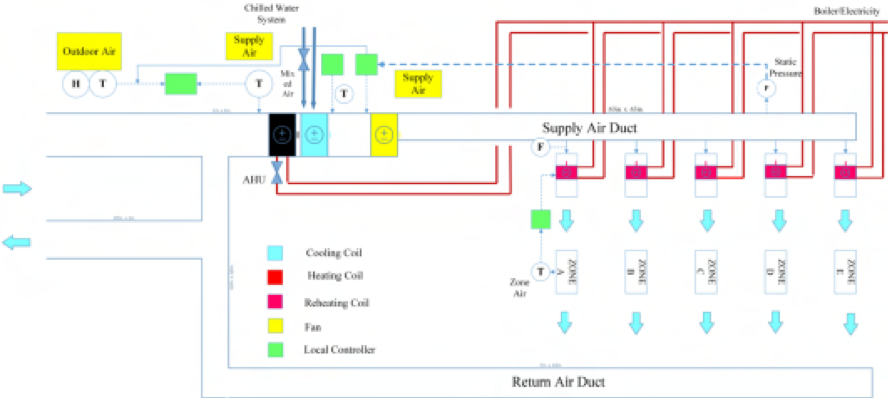Energy Optimization of Heating, Ventilation and Air conditioning system
Energy Optimization of Heating, Ventilation and Air Conditioning System
Primary researcher: Saman Taheri, Ph.D. candidate
The energy consumption in the building sector is responsible for over 36% of the total energy consumption across the globe. Of all the energy-consumer devices within a building, heating, ventilation, and air conditioning (HVAC) systems account for over 50% of the total energy consumed. This makes HVAC systems a source of preventable and unexplored energy waste that can be tackled by incorporating intelligent operations.
Model predictive control (MPC) has been one of the prospective solutions for HVAC management systems to reduce both costs and energy usage. Additionally, MPC is becoming increasingly practical as the processing capacity of building automation systems increases and a large quantity of monitored building data becomes available.
MPC also provides the potential to improve the energy efficiency of HVAC systems via its capacity to consider limitations, to predict disruptions, and to factor in multiple competing goals such as interior thermal comfort and building energy consumption.
This study contributes significantly to the advancement of smart building technologies by proposing practical frameworks for implementing advanced control strategies. The framework has the potential to be applied across a wide range of building types and climate conditions, promoting broader adoption of smart building technologies and contributing to a more sustainable environment.
